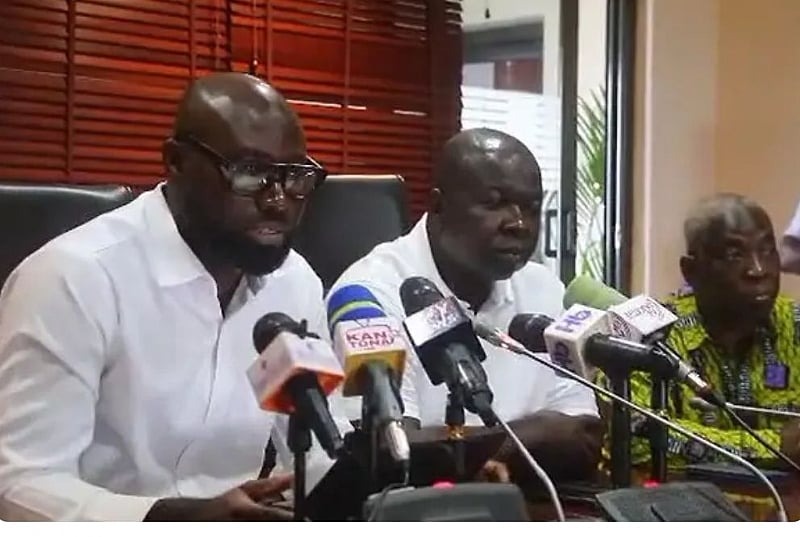The Ghanaian political landscape has been stirred by allegations from the Minority in Parliament, accusing President John Mahama of orchestrating a plan to remove Chief Justice Gertrude Torkornoo. The Minority contends that the President intends to replace her with an individual known for their affiliation with the National Democratic Congress (NDC), the ruling party. This assertion, made during a press conference, has raised concerns about potential political interference in the judiciary and the integrity of Ghana’s democratic institutions. The Minority cited purported petitions submitted to the Council of State as evidence of the President’s intentions, invoking Article 146 of the 1992 Constitution, which outlines the process for removing a Chief Justice. They framed this alleged maneuver as a calculated attempt to undermine the independence of the judiciary and install a partisan figure in a position demanding impartiality.
The Minority’s accusations have ignited a debate about the balance of power and the potential for political machinations within Ghana’s governance structure. Their claim rests on the premise that President Mahama is exploiting constitutional mechanisms to achieve a politically motivated objective. By depicting the potential successor as an NDC sympathizer, they seek to portray the move as a partisan power grab, undermining the judiciary’s role as a neutral arbiter of justice. This raises fundamental questions about the sanctity of the separation of powers, a cornerstone of democratic governance, and the potential erosion of public trust in the judicial system. The Minority’s call for intervention from religious and traditional leaders further underscores the gravity of the situation, suggesting a perceived threat to the foundational principles of Ghanaian democracy.
The Member of Parliament for Suame, John Darko, speaking on behalf of the Minority, amplified their concerns, urging influential figures within Ghanaian society to intervene and counsel President Mahama. He framed the alleged plan as a dangerous precedent, potentially jeopardizing Ghana’s democratic progress and eroding the integrity of its institutions. Darko’s appeal to religious and traditional leaders reflects a strategic attempt to mobilize public opinion and exert pressure on the President by invoking the moral authority of respected societal figures. His impassioned plea underscores the Minority’s perception of the situation as a critical juncture for Ghana’s democracy, requiring immediate action to prevent irreversible damage.
The backdrop to these allegations is the acknowledgment by the government, through the Minister for Government Communication, Felix Kwakye Ofosu, that petitions seeking the Chief Justice’s removal had indeed been submitted to the Council of State. While the government confirmed the existence of these petitions, it did not disclose their content or comment on the allegations of political motivation. This confirmation, however, fueled the Minority’s suspicions, providing them with a tangible basis for their claims. The timing of the petitions and their subsequent public disclosure have further intensified the political drama, raising questions about the motives behind their submission and the potential influence of external actors.
The Minority’s strategy in going public with these allegations appears multifaceted. By raising public awareness, they aim to preemptively discredit any potential removal of the Chief Justice, framing it as politically motivated rather than based on legitimate grounds. This proactive approach seeks to rally public support and apply pressure on the government to reconsider any such action. Furthermore, by invoking the authority of religious and traditional leaders, they aim to broaden the scope of the debate beyond the confines of parliamentary politics and engage a wider cross-section of Ghanaian society. This tactic underscores the significance of the issue and its potential implications for the nation’s future.
The controversy surrounding the alleged plot to remove Chief Justice Torkornoo highlights the inherent tensions that can arise within a democratic system, particularly concerning the delicate balance between the executive, legislative, and judicial branches. The Minority’s accusations raise crucial questions about the potential for political interference in the judiciary and the importance of safeguarding its independence. The outcome of this political standoff will undoubtedly have significant implications for Ghana’s democratic trajectory and the public’s trust in its institutions. The ongoing debate serves as a stark reminder of the fragility of democratic norms and the constant vigilance required to protect them from erosion.














